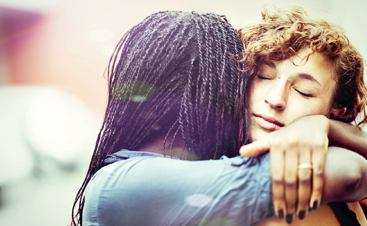THE SAME FIGHT: Why We Do It


THE DARK TRUTH ABOUT FALLING IN LOVE
Couples in conflict: they have the same argument over and over. They trigger the same resentments, provoke the same painful responses from each other and engage in the same awful behaviors as they did in their last fight.
Why? And, how to stop fighting the same fight? We find the answer in the early environmental and developmental failures that prevented healthy personal development. A person’s early suffering causes emotional injury and has far-reaching consequences, including marital strife and its repetitive fighting.
We pick our partner for specific reasons. He or she arouses in us the longing to be cared for, loved, and nurtured in a very special way—the way we’ve always wanted to be, always hoped for, and always looked for but hadn’t found until the arrival of that special person! We pick our partner because he or she seems to promise to be the one and only one who can finally, at long last, and after fruitless searching, fulfill those longings! That’s a large part of what makes him or her special! And so, with great anticipation for a life of exquisite harmony, we fall in love.
The dark truth about falling in love is this: we fall in love with someone who also has the potential to provoke us and injure us in precisely the same way as we were provoked and injured by the early environmental failures of our childhood. We fall in love with someone who reminds us unconsciously of the original injuring party—the invasive mother, the dismissive father, the passive sibling, the alcoholic grandfather.
Why?
Sparks don’t fly with everyone. We’ve all dated someone who was a good and loving person but for whom we felt nothing. Shrugging our shoulders, we might have said I just don’t feel that spark. Here’s an extreme example of what I mean. Say you’re walking in the park with a friend. Suddenly, out of nowhere, your friend turns and punches you in the gut, then hurries away. As you’re doubled-over in pain and outrage, a kindly stranger approaches and says, “I’m sorry I punched you.” In this slightly ridiculous example, we can see how the apology and the kindness of the stranger don’t correlate to the injury. The only meaningful apology is one that would need to come from your friend.
When Do Romantic Sparks fly? My thinking is that sparks fly when the other has a bit of the same potential for provocation or injury as the original injuring party. This unconscious similarity makes the new lover’s interest in us very important. The new lover’s interest in us brings with it the unconscious promise of healing the old injury—the original injury—the one we’ve been looking to repair and heal, and which the new lover seems to have the ability to do. It’s as if the new lover becomes a bit of a stand-in for the old, original injuring party but—and this is important—he or she represents the transformation of the original injuring party from transgressor to nurturer—essentially reversing their failures. In this imagined transformation we can find the longing for healing that lies hidden or embedded in falling in love, and which helps us to understand the dark truth about falling in love: we tend to choose someone who has the potential to provoke us and injure us in precisely the same way as we were provoked and injured by the early environmental failures of our childhood in order to bring about the transformation of that person from injurer to nurturer and ultimately, to bring about the needed healing.
Searching for healing. As we can see with the failure of so many relationships and marriages, the longed-for healing is rarely sustained. When “real-life” sets in, conflict does too. In my next blog posts, I’ll explore the direct link between the need for healing and the unconscious search for the transformed other, together with the problem of fighting the same fight over and over again.
Long Island Counseling
Long Island Counseling
Lisa Lempel-Sander LPsyA
Licensed Psychoanalyst
221 Hollywood Ave
Douglaston NY 11363
Contact Us Today!

Couples & Marriage Counseling
Professional marriage counseling and couples therapy helps heal after an affair or infidelity, helps build trust and improve communication, helps resolve arguments about money or sex, and teaches you what each needs to promote intimacy and emotional connection. For all couples looking to strengthen their relationship.

Anxiety & Depression
Therapy provides support and direction in overcoming addiction and substance abuse, in resolving anxiety, depression and other emotional pain including lack of confidence and low self-esteem. Therapy helps with clarifying sexual orientation, gender-based identity questions, LGBT issues, gay and lesbian questions.

Relationship In Crisis
Discernment Counseling has one goal: to help you decide whether to stay in the relationship and try to work it out, or to leave. Discernment Counseling treats both partners even when there’s disagreement about the desired outcome. Discernment Counseling is a brief, highly-focused protocol with just one goal: helping you decide.
